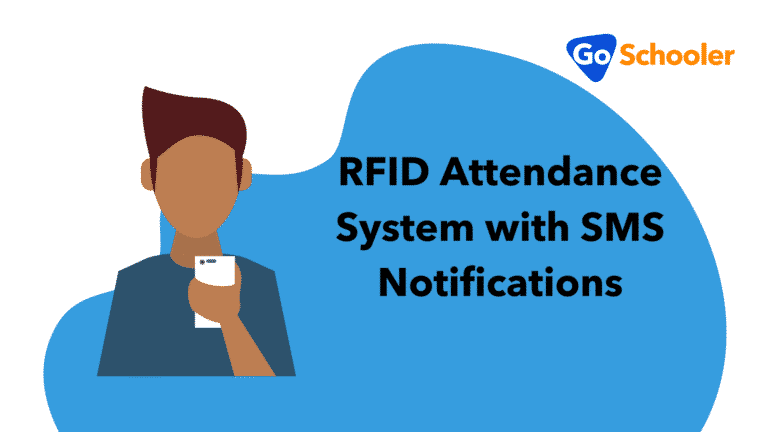Many different tools play a significant role in keeping school systems running smoothly. One of the most used tools is a timetable. So, let us discuss the need and importance of a school timetable.
Educational institutions need to have an organized system to be able to maintain a smooth flow of processes. It helps the people in the organization to be on top of things. In this process, schools can use many tools.
As mentioned, we will discuss the need and importance of school timetable as it plays a significant role in the organizational aspect. Before we proceed, let us define what a timetable is.
What is a Timetable?
A timetable is an organizational tool used to have a clear overview of future events. It is a framework that lets individuals see specific activities lined up. In this framework, it shows the tie allotment among several tasks and courses.
It is helpful for individuals who want to keep a tab of their commitments. It is also beneficial for organizations that have a lot on their plate. This way, they won’t miss an appointment or activity.
A timetable can be applied to the whole institution, per department, per year level, or even per individual class in a school setting. It can help these groups track their upcoming activities or subjects. It specifies the kinds of projects, programs, and other activities that the school needs to fulfill.
The need and importance of school timetable are emphasized in their benefits. Below are some of the essential things that a school timetable can do for your institution.
Benefits of a School Timetable
1. Ensures Equal Distribution of Time Among Activities and Subjects
The need and importance of school timetable mainly revolve around time management. It allows the organization to distribute or allocate their time equally or fairly.
A timetable can be used to plan the whole school year, including the programs. This framework will aid the school staff in allocating the number of months or days to a specific activity or schedule.
Use the periodic grading as an example. In most school settings, periodic grading is usually done four times a school year. This means that teachers need to divide the school year into four equal periods to give way to equal opportunities of learning per grading. A timetable would help teachers visualize the time given and time allocated per periodic grading.
In a classroom setting, a timetable can be used to distribute time on a daily basis. This way, different subjects per grade level can be studied equally. It also helps avoid time overlapping for the subject’s teachers.
There is various software in the market that offers an easy-to-use timetable for teachers and students. Below is a screenshot from GoSchooler, which shows a teacher’s timetable.
2. Ensures Equal Distribution of Time Among Staff
Aside from the equal distribution of time, a timetable can also help with allocating work to teachers and other staff. A timetable consists of many parts, and one of those can be the person in charge of the activity.
Supervisors or heads can adequately allocate the workload to the available employees through an organized timetable. Below is an example from GoSchooler of how a school timetable can help allocate work.
3. Creates a Smooth Workflow
The main goal of a school timetable is to have everything planned and laid out. The timetable helps both students and teachers track their designated roles or jobs at a particular time.
A timetable helps ensure that negligence and duplication of efforts will be avoided. It lays out a clear schedule or sequence of things for all concerned parties to see. It ensures that all necessary tasks will be carried out on time and by the right person in charge.
4. Prevents Wasting Time and Efforts
As mentioned, the need and importance of a school timetable revolves around time management or being organized. Since it shows the designated activities at a specific time, designated persons will know exactly how to do a task.
One’s energy and effort can be used or directed in a task set for that time. This is especially helpful in doing school activities such as special programs. It can help the management prepare for the right kind of activities. This way, no efforts, and other resources would go to waste.
5. Aids in Formulating Good Habits
A school timetable also helps both teachers and students to form good habits. Since a timetable promotes routine daily activities in schools, it will help individuals remember these activities.
It aims to improve one’s orderliness and punctuality. It would also help students in understanding what is expected from them on a daily basis. For example, aside from everyday subjects, classroom maintenance may be included in the timetable.
Children will less likely feel surprised or flustered once these kinds of activities come up. A timetable can help teachers or the school to set the expectations for students.
Different Types of Timetable
Consolidated Timetable
This type is also known as the general timetable. It is an overview of the entire activity of the school. It includes a list of the school programs per day.
It also involves the students’ class schedule and the record of every teacher’s daily work. The consolidated timetable is meant for the head of the school. But a copy is provided to all teachers and student notice boards.
Class Schedule
This type consists of the daily subjects per section classroom. This is meant for the teachers and students of that class.
It includes the daily time allotment per subject. It also indicates the breaks or rest periods of the class. A class schedule should be made in contrast with the other schedules to avoid overlapping the teacher’s schedules. It is usually posted in the designated classroom.
Teacher’s Timetable
A teacher’s schedule does not only involve teaching. There are other non-academic works that they must oversee.
So, it is important that aside from the class schedules, they have their own timetables as well. This should show the details of their teaching loads and extracurricular activities. These documents should be prepared and finalized in accordance with the consolidated timetable to ensure a smooth flow of activities.
Extracurricular Activities
All schools must not only incorporate academic teachings. They should also encourage extracurricular activities such as sports or other activities that would nurture the students further.
So, aside from the regular class schedule, the extracurricular activities’ timetable must also be prepared. This kind of timetable is usually beneficial for those who are using school facilities and maintenance personnel.
It can help these two concerned parties to see if facilities such as practice rooms or gyms are available at their preferred time. This way, no two groups will coincide with each other’s schedules. It would also help maintenance staff schedule cleanups in these areas.
FAQs
Do all schools need a timetable?
What are the different forms of school timetable?
What is the best type of timetable?
Key Points
Successful school management is one that has control over its programs, activities, and classes. One of the tools to help achieve this is the timetable.
A timetable is an important part of every school system. It helps the school maintain a smooth flow of its activities and classes. The need and importance of a school timetable are being emphasized because of these benefits.
That is why it is recommended to have a timetable per kind of activity or department. A consolidated timetable for the overall school schedule, the class timetable for classroom subject allotment, a teacher’s timetable to keep track of other workloads, and an extracurricular timetable meant for non-academic activities.







